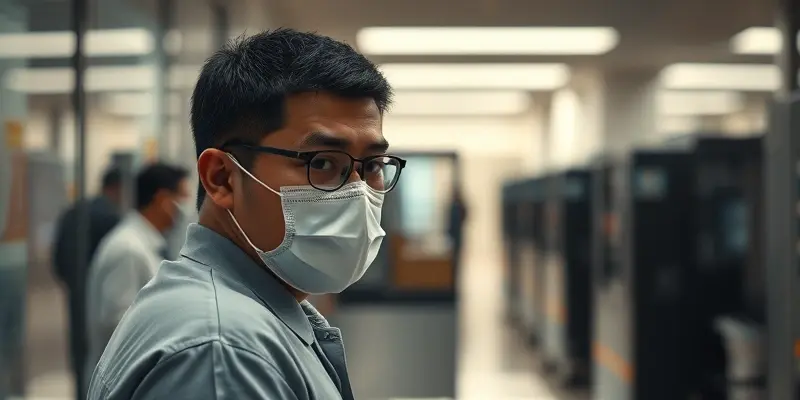Parental Pressure in Sports: How It Impacts Recovery and Injury—and What You Can Do
By GymPulse Lead Content Writer – Fitness & Health Expert (10+ years in sports performance and athlete wellness)
When we think about sports injuries and recovery, we usually focus on physical mishaps and rehabilitation. But what about the unseen forces—like parental pressure—that influence not only an athlete’s injury risk, but how quickly and healthily they recover? Today, let’s unpack how expectations off the field shape health on the field, plus proven ways to cope and bounce back.
Why Parental Pressure Matters in Sports
Parental encouragement can help athletes thrive, but too much pressure often leads to distress. Think of it as stretching a rubber band: a little tension helps performance, but overdo it and things snap.
Impact on Physical Health & Injury
- Stress and Injury Connection: Chronic anxiety from pressure tightens muscles and distracts focus, boosting the risk of strains and overuse injuries.
- Delayed Recovery: Stress hormones slow healing, making it tougher to get back in the game.
- Unhealthy Rushing: When athletes feel pushed to “prove” themselves, they may skip proper rehab, upping the odds of reinjury.
Mental and Emotional Toll
- Burnout & Dropout: Kids and young athletes who feel their worth depends on performance can lose motivation or quit sports altogether.
- Team Friction: A high-pressure home life can spill onto the field, impacting team cohesion and friendships.
Signs Parental Pressure Is Hurting, Not Helping
How do you know when encouragement crosses a line? Watch for:
- Increased anxiety before or after games
- Talking less or hiding injuries
- Loss of enjoyment in sports
- Resenting practices or parent involvement
If this sounds familiar—for yourself or an athlete you care about—know that you’re not alone, and there are ways to regain balance.
Strategies to Prevent Injury & Support Healthy Recovery
Step 1: Gradual Progress and Listening to Your Body
- Ramp up training slowly, avoiding sudden leaps in activity.
- Notice pain or fatigue signals—a smart rest day beats weeks on the sidelines.
- Follow an injury recovery checklist to ensure you’re supporting your body properly through each stage.
Step 2: Smart Nutrition and Hydration
- Fuel with lean proteins, colorful veggies, and whole grains for optimal healing.
- Stay hydrated; even mild dehydration increases injury risk and delays recovery.
Step 3: Active Recovery and Smart Tools
- Use warm-ups, cool-downs, stretching, and foam rolling to prevent tightness and speed up healing.
- Tools like massage guns, compression sleeves, and recovery apps empower self-care—helpful when outside pressure is high.
Psychological Tactics: Building a Resilient Mindset
Thought Control and Stress Management
- Use deep breathing, meditation, or visualization to reduce anxiety.
- Positive self-talk: Focus on growth and effort, not just results.
Open Communication: The “Team” Approach
- Athletes: Share your feelings! Honest talks with parents or coaches set healthy boundaries.
- Parents: Emphasize enjoyment, effort, and personal progress over wins and stats.
Growth Mindset > Fixed Mindset
- Replace “I have to be the best” with “I’m getting better every day.”
- Encourage trying new techniques—even if mistakes happen—since progress, not perfection, builds champions.
Summary Table: From Pressure to Progress
| Challenge | Impact | Solution ||———————-|—————————————-|——————————-|| Parental Pressure | Anxiety, injury risk, slow recovery | Open dialogue, stress relief || High Expectations | Burnout, sports dropout | Praise effort, set boundaries || Rush to Return | Poor healing, repeat injuries | Gradual rehab, professional guidance |
Takeaways: Making Recovery a Team Sport
Parental support should uplift, not overwhelm. If you’re a parent, aim to be your athlete’s cheerleader, not a sideline coach. If you’re an athlete, remember: voice your needs, trust the recovery process, and focus on your own growth. Coaches and clubs also play a key role—by educating families and promoting athlete well-being.
Staying strong in sport means balancing ambition with empathy—both on and off the field. By tackling the hidden pressure points, we empower every athlete to enjoy the game, stay healthy, and recover like a pro.
Ready to take charge of your recovery journey? Join the GymPulse Club community—where health, happiness, and performance go hand in hand.

